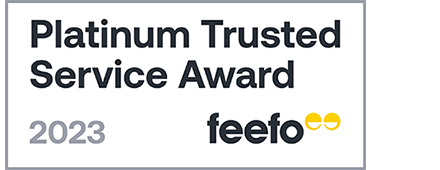reserve funds
The terms ‘reserve fund’ and ‘sinking fund’ are often used interchangeably. Essentially they’re one and the same thing – a pot of money put aside for large-scale or cyclical maintenance projects and improvements (things like painting the exterior of the building, installing new security, refurbishing the lift, etc).
This is a critical part of good money management in the property game, so read on to find out more.
Why do I need a reserve fund?
A reserve fund is a pot of money built up over a few years to ensure that no one involved with your block is out of pocket when unexpected or large-scale maintenance costs crop up. It’s a bit like a nest egg that has been set aside and earmarked for big one-off or irregular projects.
Having this ring-fenced pot of cash provides peace of mind for both you and your leaseholders. It means that the next time it’s blowing a gale and your perimeter fencing finds it’s way into the next county, you’ll have the cash in the bank to replace it! Or when the lift needs refurbishing or the windows need replacing, this can be covered without a large and unexpected bill finding its way onto every flat owners doormat.
How do I create and maintain a reserve fund?
The cash is normally collected as part of the service charges, meaning every flat owner contributes a smallish amount towards the pot every year, effectively spreading the cost of using and occupying the building as evenly as possible across the life of the lease.
But take note, you can only collect a reserve fund if the terms of your lease allow for this. If there isn’t any mention of a reserve fund in the lease then you have a couple of options.
You could collect one anyway, with the written agreement of leaseholders. However, this isn’t ideal because they would maintain the right to ask for their funds back at any time! That could potentially leave a big hole in the pot at the point you need to actually pay for something!
A better option might be to discuss with leaseholders the option of getting the lease amended so that it does then permit the collection of a reserve fund.
Reserve funds must be held in trust (as per section 42 of the Landlord and Tenant Act 1987) so that they’re clearly ring-fenced from regular service charges and day-to-day maintenance or admin expenses. The pot of money is also eligible to earn interest, which should be paid equally to leaseholders.
How much money should be in a reserve fund?
That’s the million-dollar question! Of course, the amount you need to spend over the lifetime of your block will depend on the size of the block, the number of flats in it and a whole host of other considerations, like the facilities inside, how the block is constructed and even the weather.
Generally speaking though, you would create (with the help of a qualified building surveyor) a long-term maintenance plan that tots up ahead of time, the likely cost and timescales for all necessary big bits of maintenance.
You’d add in an allowance for VAT and associated fees, then divide this cost by the number of years that will pass before the work is actually required. That gives you an annual budget to collect, which is then just split evenly across all of the flats in the block.
The amount your leaseholders should pay towards a reserve fund each year is normally detailed in the terms of the lease, so everyone is clear about what is being collected and why. It should also be reviewed annually to make sure it’s still on track.
Anything else I should know?
You can read up about best practice in the RICS Service charge residential management Code.
We are huge advocates of financial transparency. Remember, a reserve fund is money that should be spent entirely on the upkeep of your block. Holding cash is not a way of making a quick buck and money shouldn’t be squirrelled away in odd places.
Good accounting and good communication will keep the peace. Let your leaseholders know exactly where you’re holding their money and what it’s being spent on.
Panicking over the pounds?
Block management can be a complex maze of legal obligations and responsibilities. It can also be a money pit if you don’t take care of the pounds carefully.
If you want some advice about best practice property management, give us a shout. From managing funds to communicating with leaseholders and handling major works, we’ve got it covered.






